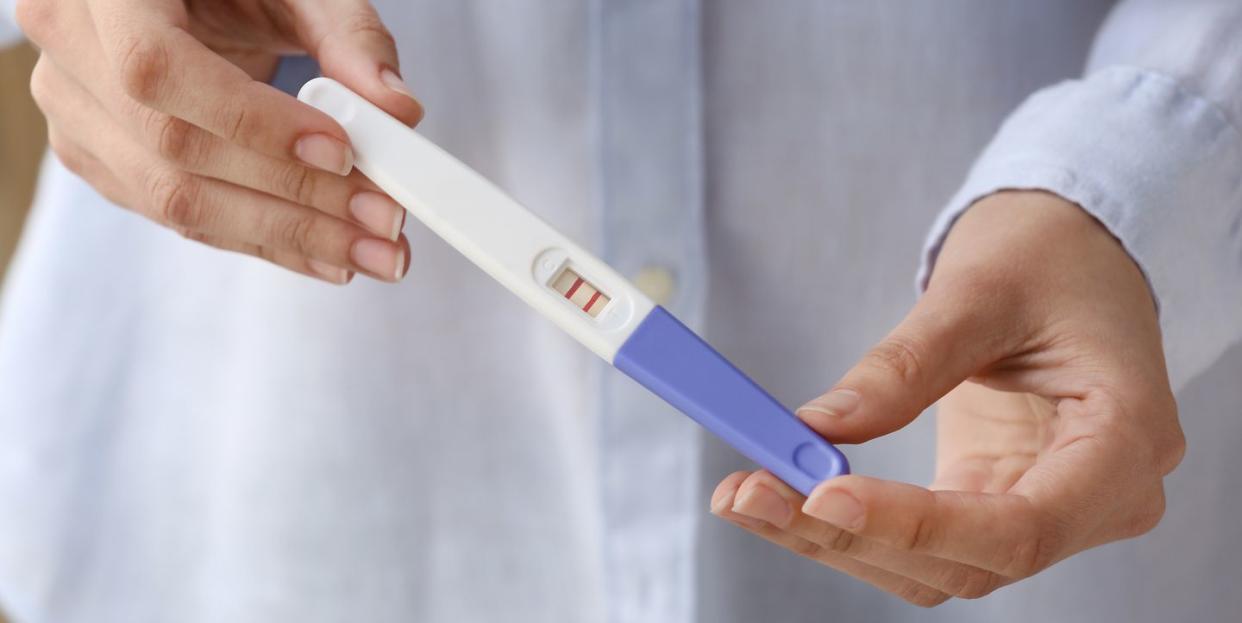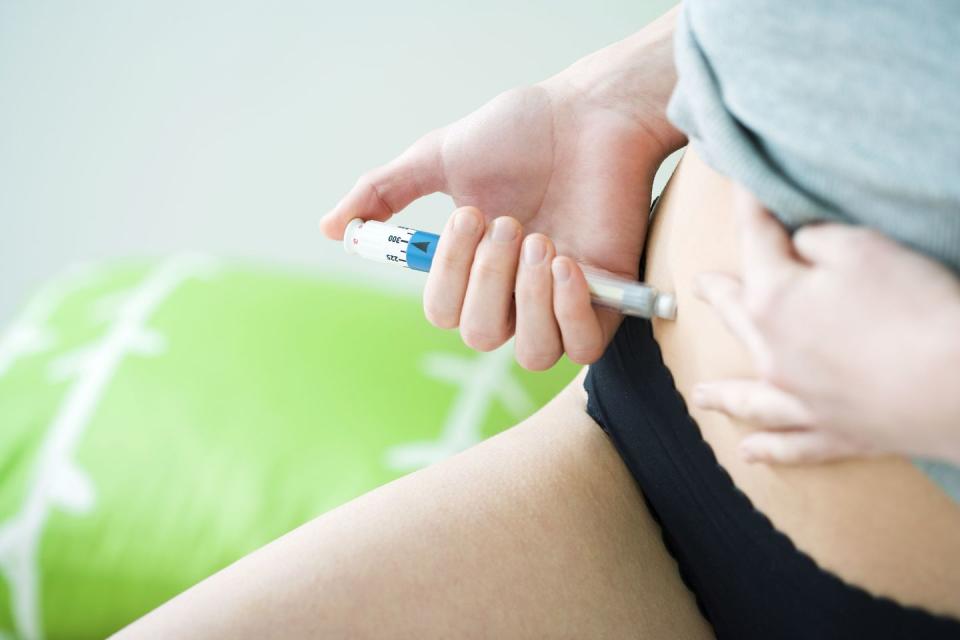In Vitro Fertilisation (IVF): Cost, process, success rate, diet and exercise tips

IVF is one of several techniques that exist to help people conceive when they have problems with fertility.
Having a baby is not always easy and you can feel desperate if you don’t conceive quite as you predicted. There are many special treatments that can help you go on to have a natural healthy pregnancy. If you are having trouble getting pregnant, your first stop should be a chat with your GP to see if you are giving yourself the best chance. They will also decide if it is appropriate to refer you to a fertility clinic.
What is IVF?
In vitro fertilisation literally means ‘fertilisation in the lab’ but this is only part of the story.
Usually, the woman has fertility hormones given to stimulate the ovaries to produce several eggs. These are then collected and fertilised with sperm in the laboratory. The embryo is then returned safely to the woman’s womb to implant and develop naturally. The eggs and sperm may be from you, your partner, donors or a combination.
IVF cost
In the UK, IVF is under strict guidelines by governing bodies. The National Institute for Health and Care Excellence (NICE) provides information to England and Wales regarding who should have IVF under the care of the NHS. The Human Fertilisation and Embryology Authority (HFEA) are the UK’s independent regulator of fertility treatment and research using human embryos. This hopefully ensures that patients have a high quality of care.
The current NICE recommendation is that IVF is offered on the NHS to women under the age of 43 who have tried to get pregnant through regular unprotected sexual intercourse for two years or who have had 12 cycles of artificial insemination.
Artificial insemination or ‘intrauterine insemination’ can be used when the male partner’s own sperm needs optimising in a sample first (such as in eliminating a genetic defect) or it will give the woman a better chance of conceiving for various fertility reasons.
Artificial insemination is also used by single women or same sex female couples wishing to conceive with donor sperm. The semen sample is prepared in the laboratory and then deposited into the womb directly by the clinician in a process after natural ovulation or stimulated ovulation.

The final decision about who can have IVF on the NHS is actually down to the local clinical commissioning groups or CCGs and your local group may have different guidelines for funding. There is a vast difference nationwide between areas and the number of cycles they offer on the NHS, ranging from zero to three cycles.
There are over 90 registered IVF clinics in the UK and there is a large price range privately. The cost of an ‘IVF cycle’ tends to include scans, egg retrieval, embryology and embryo transfer but you might find that medicine, tests and added procedures will be extra. The NHS quotes a cost of up to £5000 per cycle. Looking on the internet clinics advertise from around £3000 upwards, but you need to look carefully at what is actually included.
Sometimes additional new methods are added on to treatments and the HFEA is starting to regulate these as some treatments need further research and may not always increase your odds of success.
In some private schemes, a higher charge is made and then a refund offered if a couple do not have a baby within a specified timeframe.
Who may IVF be suitable for?
IVF may be used when there is not an explanation for infertility but in some cases the reasons are known, such as fallopian tube damage/blockage, ovulation disorders, fibroids, previous sterilisation by clipping fallopian tubes or removal of part of tube, reduced sperm count or function, endometriosis, fertility preservation before cancer or other treatments (eggs are preserved that are then fertilised via IVF at a later date).
If you or your partner is at risk of a genetic disorder you may be offered IVF to screen eggs for genetic problems prior to IVF to help prevent the baby inheriting this.
IVF Process
1. Pre-treatment counselling will include making sure you are not on any medication that could reduce fertility and to check you are taking appropriate prenatal vitamins. Any diseases will be monitored and controlled.
2. Your natural cycle is usually suppressed with medication.
3. Medicine is then given to encourage the ovaries to produce more eggs than they normally would in a cycle. The excess needed is because some of the eggs won’t fertilise or develop normally after fertilisation. This medicine is injectable FSH (follicle-stimulating hormone) and in some protocols additional hormones are used. You might need one or two weeks of ovarian stimulation.
4. You may have blood tests to check your hormonal response to the medication.
5. You will have then have a vaginal ultrasound scan to check development of eggs within the ovarian follicles (fluid-filled sacs) and there may be additional medicine given to make them mature or medication (progesterone supplements) to help prepare the lining of the womb for the embryo to implant.
(Depending on progress the doctor decides whether to persist with this cycle).

6. In a specific timeframe after the final injection and before ovulation, sterile egg retrieval is performed. A needle is carefully inserted into the ovaries (usually via the vagina) to retrieve the eggs. You may feel cramping or fullness while this is done.
7. The eggs are placed directly in a special liquid and incubated, healthy eggs then are mixed with sperm in the lab to allow fertilisation to take place – this is called ‘in vitro’ as it is in the lab and not ‘in vivo’ (in your body).
The sperm may be from a sample provided by your partner or a known donor on the morning of egg retrieval by masturbation or in the case of vasectomy say, surgical extraction from the testicle(to optimise the sample there may be an advised abstinence from intercourse beforehand) or donor sperm are prepared in the lab. The sperm are then extracted from the semen in the lab. Sometimes, a more specialised process is used for fertilisation called ICSI (Intracytoplasmic Sperm Injection) where a healthy sperm is physically injected into each mature egg. This is used with poorer semen quality or prior failure of IVF.
8. Embryo transfer, usually about 2-5 days after egg retrieval. You may be mildly sedated and in a sterile procedure a catheter or tube will be passed through your vagina and cervix into the uterus. Then a syringe is attached and fluid containing one or more embryos gently injected in. If successful, the embryo will implant. In 12 to 14 days you will have a blood test for pregnancy. You will be given advice re activity etc. and may suffer breast tenderness, bloating, cramps. Any severe pain or other symptoms must be discussed with your doctor.
IVF risks
A good clinic will counsel you about risks and side effects and ethical considerations with donor eggs or sperm etc.
There is a higher rate of multiple births if more than one embryo is transferred and this can put the pregnancy and your health more at risk. There is still a risk of ectopic pregnancy or miscarriage as with any pregnancy. Infection, bleeding and injury from the processes used are always possible.
Side effects of IVF can include:
hot flushes and headaches from the hormone treatments, or
in rarer cases, ovarian hyperstimulation syndrome where too many eggs develop in the ovaries and they become swollen and painful. This needs urgent medical care.
IVF success rate
Figures from 2014 to 2016 show approximately a 29 per cent success rate of pregnancy for women under 35 undergoing IVF and the rate reduces with age down to 9 per cent for women aged 40 to 42. This was with women using their own eggs and their partner’s sperm.
How to increase your chances of IVF success
Smoking and alcohol
It goes without saying that for both partners stopping smoking, avoiding alcohol and reducing caffeine should be part of your preparation if not already done in trying to conceive. Smoking can lower a woman’s IVF success rate by 50 per cent.
Diet
A small study in 2018 looking at the Mediterranean diet and found that women who ate more fresh vegetables, fruit, whole grains, legumes, fish and olive oil and less red meat in the six months prior to IVF had a higher chance of achieving a successful pregnancy.
Similarly, a study looking at the diet of a man hoping to conceive being of a Mediterranean type and improving semen quality showed promising results, but more studies are needed as there could be many factors at play. It would make sense that anyone planning a pregnancy would follow a healthy diet to ensure their health and that of their child is optimised.
Exercise
Most doctors advise continuing with your normal exercise regime when trying to conceive naturally or prepare in advance of IVF to keep your BMI healthy and aid fertility. Obesity can have a negative impact fertility. Maintaining low impact movement will improve mood and sleep.
There is specific advice about avoiding some higher impact exercise such as arduous running when going through or preparing for a cycle of IVF and you must ask your specialist fertility team regarding this. They may recommend yoga, stretching, swimming and low impact workouts during treatment. Follow advice of your clinic empirically if they ask you to avoid heavy exercise during the ‘two week wait’ after embryo transfer.
Sleep is important for all aspects of health including fertility. Getting to sleep within the windowthat melatonin naturally peaks – between 9 and midnight may help. Relaxation methods will help you cope with any side effects of medication and the general anxiety you may experience at this time.
Last updated: 29-07-2020
You Might Also Like


